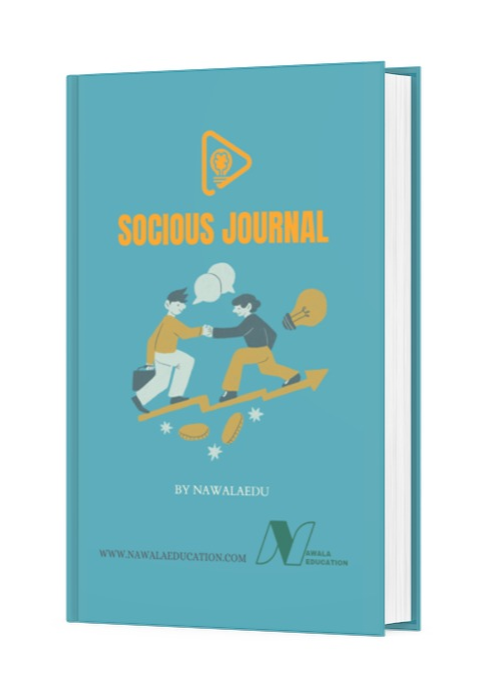Innovation In Public Policy Development: Challenges And Opportunities For Public Administration
DOI:
https://doi.org/10.62872/pwqe9k10Keywords:
Big data, E-government, Public policy innovation, Public participation, Public-Private PartnershipAbstract
The phenomenon of globalization requires the government to continue to innovate in public policy in order to respond to rapid social, economic, and technological changes. This study focuses on the challenges and opportunities in implementing public policy innovation in Indonesia. The approach used is the Systematic Literature Review (SLR), which analyzes literature from the last 10-15 years related to innovations such as e-government, big data, and cross-sector collaboration through Public-Private Partnership (PPP). The results of the study show that public policy innovation can increase bureaucratic efficiency and public participation, especially through digital platforms that enable direct interaction between the public and the government. However, the implementation of this innovation faces a number of challenges, such as bureaucratic resistance to change, limited human resources, and the digital divide in various regions of Indonesia. Local governments are often less prepared to adopt new technologies due to limited infrastructure and lack of skills in managing big data and other digital technologies. The conclusion of this study emphasizes that bureaucratic reform and increasing human resource capacity are urgent needs to ensure the successful implementation of innovation in public policy. In addition, closer collaboration between the government and the private sector through mechanisms such as PPP can help accelerate infrastructure development and improve the quality of public services. The implications of this study indicate that the government needs to be more proactive in encouraging synergy between stakeholders, as well as developing a more equitable and inclusive digital infrastructure to support the sustainability of policy innovation in the future.
Downloads
References
Bason, C. (2018). Leading Public Sector Innovation: Co-Creating for a Better Society. Policy Press.
Braun, V., & Clarke, V. (2006). Using thematic analysis in psychology. Qualitative Research in Psychology, 3(2), 77-101.
Creswell, J. W. (2014). Research Design: Qualitative, Quantitative, and Mixed Methods Approaches (4th ed.). SAGE Publications.
Effendi, A. (2020). Inovasi Kebijakan Publik di Era Digital: Studi Kasus Indonesia. Jurnal Administrasi Publik Indonesia, 5(2), 50-62.
Hadi, S. (2017). Inovasi E-Government dalam Meningkatkan Kualitas Pelayanan Publik di Indonesia. Jurnal Ilmu Administrasi Negara, 15(2), 112-125.
URL: https://jurnal.uns.ac.id/spirit-publik/article/download/16236/13050
Hartley, J. (2005). Innovation in Governance and Public Services: Past and Present. Public Money & Management, 25(1), 27-34.
Howlett, M. (2014). From the 'Old' to the 'New' Policy Design: Design Thinking Beyond Markets and Collaborative Governance. Policy Sciences, 47(3), 187-207.
Iskandar, F. (2019). Pemanfaatan Teknologi Blockchain dalam Pengadaan Barang dan Jasa Pemerintah di Indonesia. Jurnal Teknologi Informasi dan Komunikasi, 11(2), 77-88.
URL: https://doi.org/10.14710/jtik.v11i2.77-88
Kitchenham, B. (2004). Procedures for Performing Systematic Reviews. Keele University.
Mazzucato, M. (2013). The Entrepreneurial State: Debunking Public vs. Private Sector Myths. Anthem Press.
Nugroho, R. (2016). Big Data dalam Kebijakan Publik: Potensi dan Tantangan di Indonesia. Jurnal Manajemen Kebijakan Publik, 11(1), 45-58.
URL: https://doi.org/10.14710/jmkp.v11i1.45-58
Nugroho, R. (2016). Big Data dalam Pengambilan Keputusan Kebijakan Publik: Potensi dan Tantangannya di Indonesia. Jurnal Manajemen Kebijakan Publik, 10(3), 23-34.
URL: https://doi.org/10.14710/jmkp.v10i3.23-34
Nursyamsi, S. (2018). Kolaborasi Lintas Sektor dalam Inovasi Kebijakan Publik: Studi Kasus Public-Private Partnership di Indonesia. Jurnal Administrasi Publik, 15(4), 211-230.
URL: https://doi.org/10.14710/jap.v15i4.211-230
Osborne, S. P., & Brown, K. (2011). Innovation in Public Services: Engaging with Risk. Public Money & Management, 31(1), 7-14.
Prasojo, E., et al. (2019). Koordinasi Antar Lembaga dalam Pelaksanaan Kebijakan Publik di Indonesia. Jurnal Administrasi Publik, 19(2), 102-118.
URL: https://doi.org/10.14710/jap.v19i2.102-118
Prasojo, E., et al. (2019). Transformasi Digital dalam Birokrasi Indonesia: Studi Kasus Implementasi E-Government. Jurnal Administrasi Publik, 19(2), 102-118.
URL: https://doi.org/10.14710/jap.v19i2.102-118
Prasojo, E., Muluk, K., & Nurmandi, A. (2019). Transformasi Digital dan E-Government di Indonesia: Dampak Terhadap Efisiensi Birokrasi. Jurnal Ilmu Administrasi Negara, 17(3), 123-140.
URL: https://doi.org/10.14710/jian.v17i3.123-140
Purnomo, B., & Kusnadi, A. (2018). Keterbatasan Sumber Daya dan Anggaran dalam Implementasi Kebijakan Publik di Daerah Terpencil. Jurnal Pembangunan Ekonomi dan Kebijakan Publik, 12(3), 145-159.
URL: https://doi.org/10.14710/jpek.v12i3.145-159
Purnomo, B., & Kusnadi, A. (2018). Kolaborasi Public-Private Partnership (PPP) dalam Proyek Infrastruktur di Indonesia. Jurnal Pembangunan Ekonomi dan Kebijakan Publik, 12(3), 145-159.
URL: https://doi.org/10.14710/jpek.v12i3.145-159
Rahardjo, S. (2019). Partisipasi Digital Masyarakat dalam E-Musrenbang: Inovasi Teknologi di Indonesia. Jurnal Kebijakan dan Pelayanan Publik, 16(4), 205-219.
URL: https://doi.org/10.14710/jkpp.v16i4.205-219
Rahardjo, S. (2019). Tumpang Tindih Regulasi sebagai Penghambat Implementasi Kebijakan Publik di Indonesia. Jurnal Kebijakan dan Pelayanan Publik, 16(4), 205-219.
URL: https://doi.org/10.14710/jkpp.v16i4.205-219
Ramadhan, A., & Febrianti, D. (2015). Resistensi Birokrasi dalam Penerapan E-Government: Studi Kasus di Pemerintah Daerah Indonesia. Jurnal Teknologi Informasi dan Komunikasi Publik, 7(1), 123-135.
URL: https://jurnal.uns.ac.id/spirit-publik/article/download/16236/13050
Ramadhan, A., & Febrianti, D. (2015). Transformasi Digital dalam E-Government di Indonesia: Tantangan dan Peluang. Jurnal Teknologi Informasi dan Komunikasi Publik, 7(1), 123-135.
URL: https://jurnal.uns.ac.id/spirit-publik/article/download/16236/13050
Setyawan, A., & Triyanto, T. (2020). Penggunaan Teknologi dalam Musyawarah Rencana Pembangunan (Musrenbang) sebagai Inovasi Partisipasi Publik di Indonesia. Jurnal Partisipasi Publik, 22(1), 45-60.
URL: https://media.neliti.com/media/publications/514911-none-8ffb246c.pdf
Setyawan, A., & Triyanto, T. (2020). Penggunaan Teknologi dalam Musyawarah Rencana Pembangunan sebagai Inovasi Partisipasi Publik di Indonesia. Jurnal Partisipasi Publik, 22(1), 45-60.
URL: https://media.neliti.com/media/publications/514911-none-8ffb246c.pdf
Taufik, M., & Sugiyanto, Y. (2020). Partisipasi Digital dalam Musrenbang: Tantangan dan Peluang dalam Kesenjangan Digital. Jurnal Partisipasi Masyarakat, 24(2), 89-102.
URL: https://doi.org/10.14710/jpm.v24i2.89-102
Tranfield, D., Denyer, D., & Smart, P. (2003). Towards a Methodology for Developing Evidence-Informed Management Knowledge by Means of Systematic Review. British Journal of Management, 14(3), 207-222.
Zamroni, R., & Setyawan, I. (2020). Penerapan Big Data dalam Kebijakan Publik: Tantangan dan Potensinya di Indonesia. Jurnal Manajemen Kebijakan Publik, 14(2), 67-80.
URL: https://doi.org/10.14710/jmkp.v14i2.67-80
Zamroni, R., & Setyawan, I. (2020). Tantangan Penggunaan Big Data dalam Kebijakan Publik di Indonesia. Jurnal Manajemen Kebijakan Publik, 14(2), 67-80.
Downloads
Published
Issue
Section
License
Copyright (c) 2024 Heny suhindarno, Seffiani Dwi Azmi, Andi Yusuf Katili, Rukiah Nggilu (Author)

This work is licensed under a Creative Commons Attribution-ShareAlike 4.0 International License.

This work is licensed under a Creative Commons Attribution-ShareAlike 4.0 International License.











